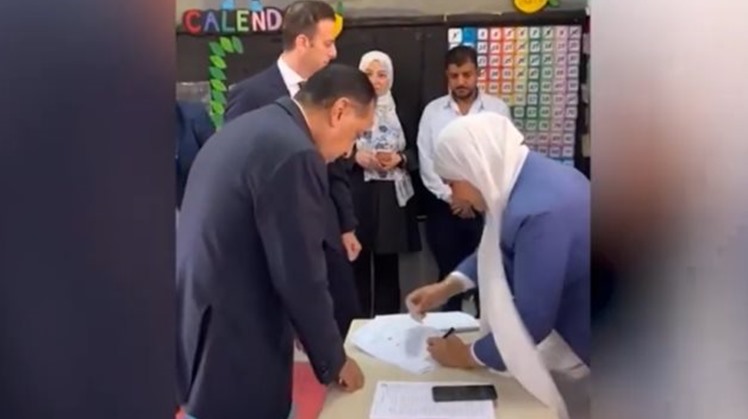CAIRO - 10 November 2025: Egypt launched the first phase of its House of Representatives elections on Monday morning, with polling stations welcoming voters under judicial oversight and extensive observation by civil society and international media.
This phase is being conducted under full judicial supervision, accompanied by oversight from civil society organizations as well as coverage by domestic and international media.
The first round encompasses 14 governorates: Giza, Fayoum, Beni Suef, Minya, Assiut, the New Valley, Sohag, Qena, Luxor, Aswan, the Red Sea, Alexandria, Beheira, and Marsa Matrouh.
According to the National Election Authority, 35.28 million eligible voters are registered in this stage, distributed across 5,606 polling subcommittees within 70 electoral districts. A total of 1,281 candidates are contesting individual seats, alongside one list running for the proportional representation seats allocated to the West Delta and Central, Southern, and Northern Upper Egypt regions.
Judges from the State Lawsuits Authority and the Administrative Prosecution Authority, who are serving as heads of polling subcommittees, arrived early to review their stations. They ensured the availability of essential materials—ballots, voter lists, and required documentation—and confirmed ballot boxes were empty before sealing them with coded security locks.
Security forces have been stationed around polling locations to maintain order and ensure voters can participate peacefully.
To support broader voter participation, particularly among the elderly and persons with disabilities, the National Election Authority has implemented several facilitative measures. Many polling stations have been located on ground floors and equipped with instructional signage, including QR codes providing access to voting guidelines and educational materials.
Voters with hearing impairments have been provided ballot papers featuring sign language symbols, while visually impaired voters can use Braille ballots containing instructions to guide their selections.
Additionally, each ballot clearly indicates the number of candidates voters must choose in their constituency to reduce the likelihood of invalid ballots.
The electoral process is being monitored by a range of international and regional organizations, including the Arab League, the African Union, the Organization of Islamic Cooperation, the Arab Organization for Electoral Management Bodies, and the Parliamentary Assembly of the Mediterranean, in addition to local NGOs and media representatives from Egypt and abroad.
 Mon, Nov. 10, 2025
Mon, Nov. 10, 2025